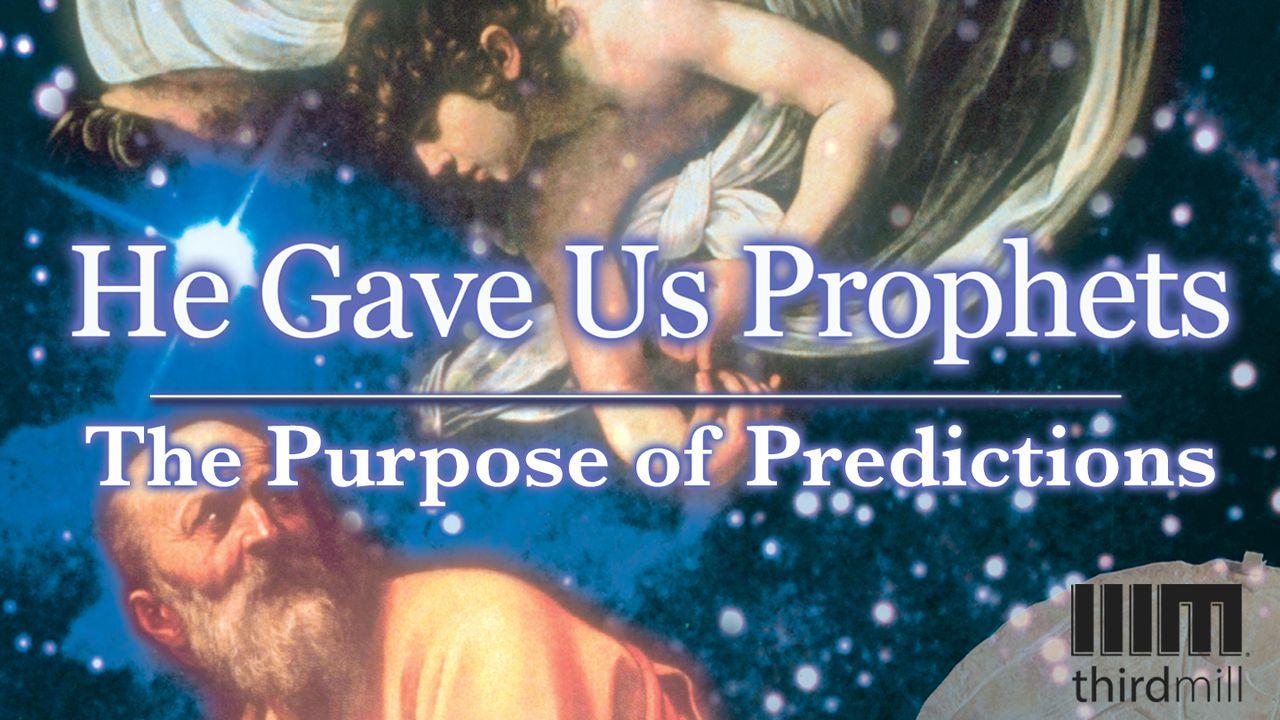He Gave Us Prophets: The Purpose of PredictionsSample

Example #1: 2 Chronicles 12
Let’s look at the prediction of Shemaiah. In 2 Chronicles 12:5 we read Shemaiah’s announcement of judgment:
Then the prophet Shemaiah came to Rehoboam and to the leaders of Judah who had assembled in Jerusalem for fear of Shishak, and he said to them, “This is what the Lord says, ‘You have abandoned me; therefore, I now abandon you to Shishak.’”
Notice that Shemaiah did not offer any explicit conditions for this prophecy. For people unfamiliar with the ministries of the prophets, it sounds as if Shemaiah revealed an eternal, unchangeable decree of God. But Rehoboam and the leaders of Judah knew better. They hoped that these words were just a warning from God, a warning of what God was going to do if they did not repent. So we find in 12:6 these words:
The leaders of Israel and the king humbled themselves and said, “The Lord is just.”
When Rehoboam and the leaders of Judah heard the prophecy of judgment, they knew what to do. They were to call out to God in repentance and faith, seeking for His mercy.
As we continue to read this passage, the intervening historical contingency of humble prayer had a dramatic effect on the fulfillment of Shemaiah’s prediction. In fact, Shemaiah himself acknowledged this effect. Consider what he said after the leaders of Judah repented. In verses 7 and 8 we read these words:
When the Lord saw that they humbled themselves, this word of the Lord came to Shemaiah: “Since they have humbled themselves, I will not destroy them, but will soon give them deliverance. My wrath will not be poured out on Jerusalem through Shishak. They will, however, become subject to him, so that they may learn the difference between serving me and serving the kings of other lands.”
This passage makes clear that Shemaiah’s ministry was much like that of preachers today. He warned of judgment to come, not so that he could condemn people to everlasting perdition, but so that the people would hear this warning, repent, and then receive the grace of God. So we see that the human reaction of prayer made a significant difference in the way that Shemaiah’s prophecy would be fulfilled. In this case, Shemaiah’s prophecy was not utterly reversed, but it was mollified, or softened, so that the attack against Jerusalem was not as great as it would have been.
Scripture
About this Plan

This reading plan explores four topics related to prophetic words about the future: God's sovereignty, human contingencies, degrees of certainty, and desired outcomes.
More
We would like to thank Third Millennium Ministries for providing this plan. For more information, please visit:
http://thirdmill.org
Related Plans

Wake Up Your Faith

Keeping Godly Relationships

Finding Your Way Back to God

I'm New! What Do I Do?

Admonishment: Love’s Hard Conversation

Team C4C Testimonies

2 Samuel 1-11:1: A King After God's Own Heart

Small Wonder: A Christmas Devotional Journey

Foundation First: Building Habits That Actually Last
